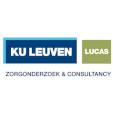The development and evaluation of a volunteer model in the compassionate city
Project group
Researcher: Louise D’Eer (VUB)
Daily supervisor: prof.dr. Tinne Smets (VUB)
Promotor: prof. dr. Joachim Cohen (VUB)
Promotor:prof. dr. Kenneth Chambaere (UGent)
Co-promotor: prof. dr. Luc Deliens (UGent)
Co-promotor: prof. dr. Lieve Van den Block (VUB)
Co-promoto: prof. dr. Sarah Dury (VUB)
Partners



Period
01-2019 to 03-2023
Abstract project
Background:
As a response to the current situation where palliative care is highly professionalised and there is only moderate input from the community (1), we are bound to look at models of palliative care that involve the community as well, and create community capacity concerning serious illness, death, dying, loss and bereavement (2). One way of involving the community in palliative care, is through volunteering (2). Therefore, in a compassionate city (study 3a), volunteer mobilisation plays a crucial role. A compassionate community volunteer model can entail both informal and
formal volunteering. In the case of informal volunteering, people in the compassionate city, can mobilise collectively when being confronted with issues concerning serious illness, death, dying, loss or bereavement; and thereby engage in compassionate, collective civic engagement. Thanks to their local ties, these compassionate, collective civic engagers may have the ability to strengthen people’s social support network, when confronted with these issues (3). Additionally, also volunteers, formally connected to an organisation or initiative, can strengthen their
skills concerning serious illness, death, dying, loss and bereavement. Especially, volunteers in community home-care, who pay home visits to the elderly and seriously ill, are in a unique position to build a relationship with those seriously ill, and their caregivers (4). Such skills may be strengthened through training.
Aim:
The aim of this study is twofold:
- To co-develop, implement and evaluate a compassionate, collective civic engagement initiative in a neighbourhood in the compassionate city.
- To co-develop, implement and evaluate a training programme for a volunteer community home- care organisation in the compassionate city.
Method:
The compassionate, collective civic engagement initiative as well as the training programme for volunteers in community home-care will be co-developed with relevant stakeholders in the compassionate city.
- Citizen participation tables will be organised by community builders in neighbourhoods of the compassionate city in order to mobilise people in a compassionate, collective civic engagement initiative. This initiative will be tested for the period it is facilitated by the community builders, and will be evaluated using a mixed method approach of qualitative and quantitative methods.
- A training programme will be co-developed with volunteers in a community home-care organisation, tested and evaluated using a mixed method approach of qualitative and quantitative methods.
Funding
Research Foundation Flanders (FWO)


